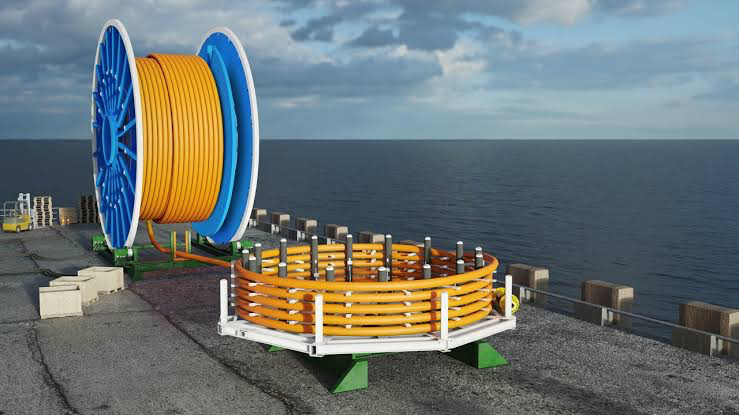Strohm, a pioneer in thermoplastic composite pipe (TCP) technology, has achieved a significant milestone by successfully deploying its first TCP jumper for TotalEnergies in the challenging offshore environment of West Africa. This achievement marks a major step forward in the quest for sustainable and efficient subsea solutions.
The TCP jumper installation took place at the Egina field, located off the coast of Nigeria, in water depths of approximately 1,600 metres. Strohm CEO Martin van Onna expressed his enthusiasm for this groundbreaking accomplishment, stating, “This success reaffirms TCP as an ideal deepwater solution and strengthens our leading position in the market.”
The deployment of the TCP jumper followed a series of rigorous tests, leading to TotalEnergies qualifying it for permanent subsea applications. Strohm’s innovative 5.2″ ID TCP jumper, designed to withstand pressures of up to 340 bar, was installed on the Egina field, with the support of a Nigerian subsea services provider. Notably, the lightweight nature of the equipment enabled easy transportation and installation by a smaller vessel. Strohm also mobilised its own offshore personnel to assist with the installation process.
Strohm has been at the forefront of TCP technology since 2007, advocating its adoption as a means to reduce the carbon footprint of pipeline projects by more than 50%. This milestone underscores the company’s dedication to environmental sustainability in the oil and gas industry.
Among Strohm’s shareholders are prominent entities such as Aker Solutions, Chevron Technology Ventures, Evonik Venture Capital, Saudi Aramco Energy Ventures, Shell Ventures, Subsea 7, Sumitomo Corporation, HPE Growth, HydrogenOne Capital Growth, and ING Corporate Investments.
TotalEnergies has also engaged Strohm for its expertise in providing jumpers for Aker Solutions as part of the Moho Infill project in Congo Brazzaville. Securing this project in mid-2023, Strohm committed to delivering the equipment by year-end, further solidifying its reputation as a reliable partner in the industry.
Strohm’s remarkable TCP technology has also been employed by other major players in the sector, including ExxonMobil in Guyana and Sinopec’s Addax Petroleum in Nigeria. The company’s capacity to produce up to 140 kilometres of TCP technology annually positions it as a key contributor to the advancement of sustainable subsea solutions.
As Strohm continues to lead the way in TCP technology deployment, the industry can look forward to increased efficiency, reduced environmental impact, and enhanced operational capabilities in challenging offshore environments.



